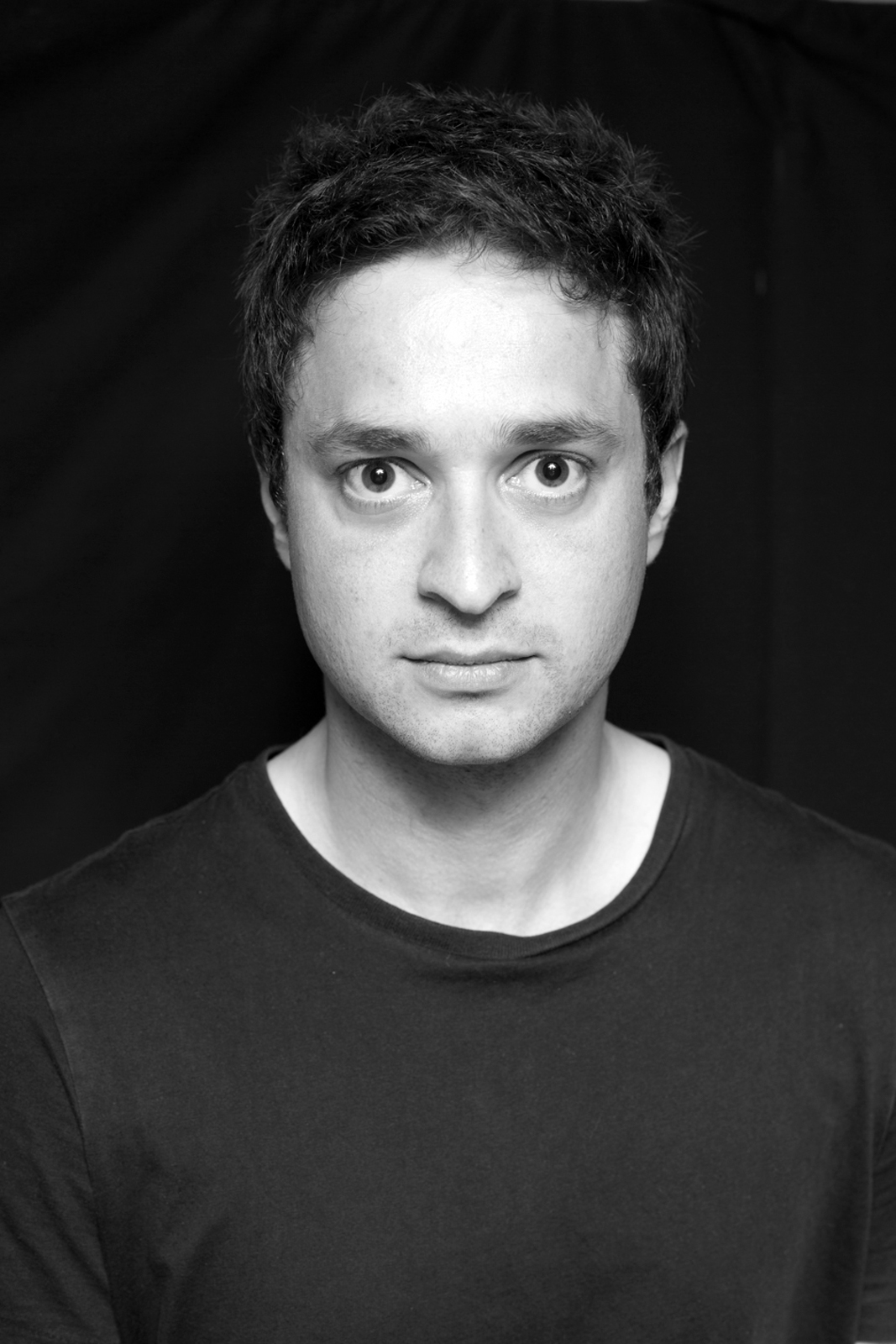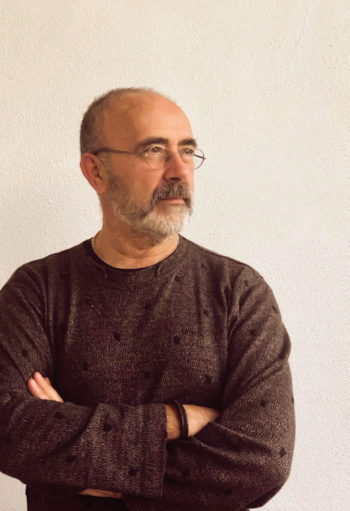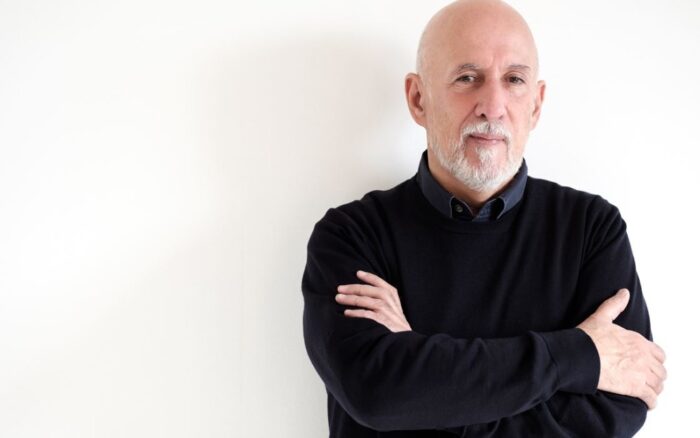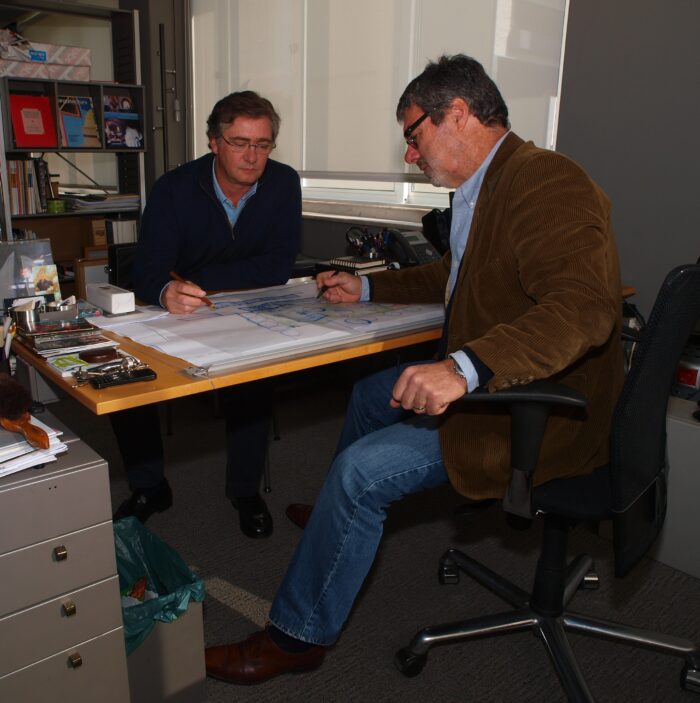A conversation with Arch. Gilberto Pedrosa

A conversation with Arch. Gilberto Pedrosa
'The genesis of SPACEGRAM was based on the promise to free projects from the most expected or recycled design solutions, always betting on a strong conceptual approach as the motto for its development'
Where did your interest in architecture come from?
My interest in building things was born very early on, long before I knew what architecture was really about. In my grandfather’s workshop, I developed my first creations, from small constructions to toy objects, such as small houses or wooden spinning tops. Ever since I can remember, I’ve wanted to be an architect. I never wanted to be a policeman or a fireman or any of the other professions we dreamed of as kids. Always and only an architect.
Ana Ferrão, Bruno Pereira and Gilberto Pedrosa decided to create SPACEGRAM. Where did the idea for this project come from?
SPACEGRAM was born in London, at a time when we were all working there. We brought together different backgrounds and experiences, but a joint desire to experiment with new techniques and approaches to create innovative projects, which in themselves can prove to be unexpected experiences. The genesis of SPACEGRAM was based on the promise to treat each new project as if it were the first, freeing it from the most expected or recycled design solutions and always betting on a strong conceptual approach as the motto for its development.
In SPACEGRAM you have different creative backgrounds. How would you describe each one?
Yes, indeed we do. And we’re equally different in our approach to themes, but it’s in this diversity that we find the common thread in the development of our projects. Ana’s passion for design and fashion has resulted in her personal research and commitment to patterns, colors and textures, which are articulated in the development of the creative work we do in the atelier. Bruno is interested in discovering new forms through innovative design with a strong component of experimentation through three-dimensional modeling. I’m mainly interested in prototyping and experimentation, in the realization of tailor-made, unconventional and therefore innovative design and architecture.
What has international experience brought you?
Well, we’re talking about architectural markets that are different in size and therefore also in terms of projects. Multidisciplinary teams, some of them large, which allow for different working methods. Different, in fact, without necessarily being better or worse than ours. However, in my opinion, getting out of one’s comfort zone is always important for personal, academic and professional development. I believe that the rejection of conventional limits that we naturally impose on our projects reflects our experience in different studios in different countries, with their respective diversity of cultures, vision and methods.
Your focus is design. Where does this passion come from?
I’m not sure. But project development involves a lot of dedication and many hours, and this creates a strong bond, which is sometimes more than a passion, it’s almost an obsession. Each project has its own particularities, but in general, we strive to develop design from start to finish, from research to the creation of the space, or even personalized objects that speak the same language as that space. We seek to offer a complete experience, articulating and personalizing all the details linked to a project in a unique way. Our aim is to create spatial environments in an experimental and future-oriented way.
Bold spaces, experimentation and rejection of conventional boundaries… Tell us about your philosophy.
We like to work with bold clients who believe in the importance of intelligent, creative, elegant and integrated design as much as we do. In every project we try to introduce an experimental logic, either through adaptations of differentiating industrial processes or in the development/combination of materials. Architecture can only serve the basic function of creating a response to needs. But it must go a little further. Of course, this will always be to the extent that the client is receptive to ideas that sometimes seem too daring, to the extent that they challenge established concepts. And we can’t forget the contribution of clients, who are also very innovative and put us to the test. The rest is work and investment by the team in finding and developing the right processes and partners with the mentality to do things differently.
Your interior design project for the Nómada Chiado restaurant in Lisbon made the shortlist for the FRAME Awards 2021, in the Hospitality/Restaurant of the Year category. How do you see this kind of recognition?
We don’t work for the awards. We do it for the client and for the passion we have for architecture. But this kind of recognition is very gratifying. Seeing the work we do recognized is, above all, a sign that we are on the right track and that the dedication, dedication and, above all, the vision we have and want for our projects is recognizable. And clients also see this recognition, which is testimony to the fact that they make the right choice when they believe in what we can add to the project they want to realize.
This interview is part of Artes & Letras Magazine #142, June 2022
Partially automatic translation from portuguese: some expressions may differ from their actual meaning.
News & Interviews
A conversation with Arch. Alberto Caetano
‘One of the most important things for an architect is […] to get a sense of the history of architecture, because if there is Corbusier, Mies and Siza, it is because there were Miguel Ângelo, Bramante and Borromini’ Read more
A conversation with Arch. Carrilho da Graça
‘Architects are always trying to communicate, in a perfect way, what they think (...) I cannot say that there is one that is‘ the’ work. I am always trying to achieve perfection.' Read more
A conversation with Arch. Tomás Rebelo de Andrade and Arch. Jorge Garcia Simões
'The word complicate is not part of our lexicon because we want what we do to be discernible and to be read’ Read more




